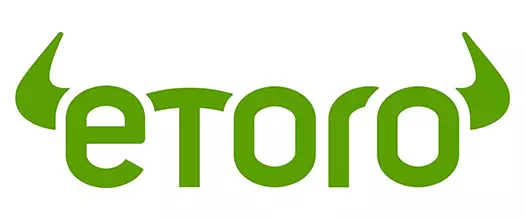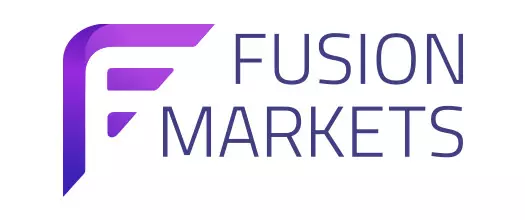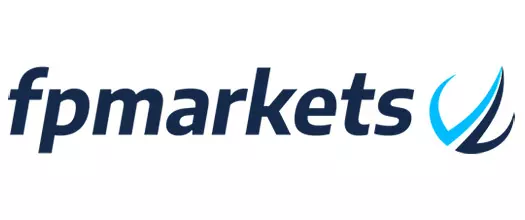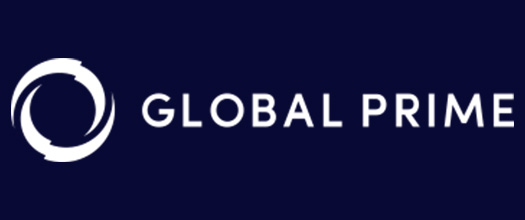- Jump to:
- Main features of the best Singapore Forex brokers
- Forex Legislation
- Financial Regulators
- Payment Methods
- Trading Software
- Mobile Trading
- FAQ
Our team of expert traders tested many regulated and trustworthy forex brokers that accept traders from Singapore and compiled a top list of the best among them. Each broker operating in Singapore received a quality score based on several factors, including its Trustpilot rating, regulation, fees and commissions, available trading platforms, customer service, and more.
 Plus500 USThis content applies only to Plus500 US and clients from the United States. Trading futures involves the risk of loss.
Plus500 USThis content applies only to Plus500 US and clients from the United States. Trading futures involves the risk of loss. eToro61% of retail investor accounts lose money
eToro61% of retail investor accounts lose money Fusion Markets74-89% of retail's CFD accounts lose money
Fusion Markets74-89% of retail's CFD accounts lose money FP Markets73.85% of retail investor accounts lose money
FP Markets73.85% of retail investor accounts lose money Global Prime74-89% of retail CFD accounts lose money
Global Prime74-89% of retail CFD accounts lose money Pepperstone75.5% of retail investor accounts lose money
Pepperstone75.5% of retail investor accounts lose money
Below you can find a comprehensive comparison table of forex brokers for traders in Singapore. We rank them based on several factors, including regulation, spreads and commissions, Trustpilot rating, trading instruments, trading platforms, and deposit and withdrawal methods.
Our team has thoroughly evaluated all brokers listed below using TradingPedia’s exclusive methodology.
Main features of the best Singapore forex brokers
- Brand
- Trading platforms
- Minimum deposit
- Regulations
- Trading instruments
- Spreads
- Leverage for Forex CFDs
- Leverage for Crypto CFDs
- Leverage for Indices CFDs
- Deposit methods
- Withdrawal Methods
- Commission per Lot
- Contact details
Being one of the largest financial hubs in the world, Singapore is also among the strongest forex centres after New York, London, Europe, and Japan. This small island city-state in Southeast Asia has a population of over 5.6 million and the third-highest per capita GDP in the world in terms of purchasing power parity.
Over the past few decades, Singapore has developed as one of the four Asian Tiger economies, but since the 1990s it has managed to surpass its peers with thriving sectors, including international trade, manufacturing, financial services, oil refining, and more. The Singapore Exchange (SGX), which was established in 1999, is currently the largest exchange in South-East Asia and, with its several divisions, provides securities and derivatives trading. The nation is the third-largest foreign exchange centre in the world and has a reputation for being pro-business and modern. It is, therefore, hardly a surprise that there are so many forex brokers and traders in Singapore.
The country does not place significant restrictions on forex trading and practically anyone can freely access the market through a licensed broker. Market participants are not regulated very strictly and there is no major interference by government agencies or regulatory bodies. Overall, the authorities have managed to create a free, transparent forex market through clear rules, an elaborate regulatory framework, and an attractive business environment.
Singapore forex legislation
As one of the world’s most important financial hubs, Singapore is also a leader in the development of new, adequate regulations that guarantee the fairness, safety, and transparency of the forex market. The country has one of the lowest rates of forex scams, and Singapore investors enjoy a highly secure environment where the integrity of brokers is underwritten by a local licence.
To provide their services to investors based in Singapore, all brokers, including foreign firms, need to obtain authorisation from the local regulator, the Monetary Authority of Singapore (MAS). They are required to operate under either a Capital Markets Services or a Financial Advisors’ licence – practically all forex and CFD brokers in the country hold a Capital Markets Services licence. To obtain it, forex agents go through an examination process that aims to determine whether brokers are reliable and comply with all relevant legislation.
One of the most important requirements is that brokers have sufficient capital to cover any losses and prevent bankruptcy. Another requirement is that the firm create segregated accounts for its clients so that their money is always kept separate from company funds. Those who want to deal in securities need to have a minimum group shareholders’ fund of S$200 million (Singapore dollar, usually S$ or SGD), while futures brokers need a minimum capital of S$100 million.
Forex brokers in Singapore are not allowed to take positions or act as principals in money markets or foreign exchange. Until recently, the country did not impose any restrictions on trading conditions. For instance, most regulators place a cap on leverage – up to 1:25 according to the FSA of Japan, up to 1:30 in EU countries, and up to 1:50 in the USA. However, brokers in Singapore could offer their clients leverage as high as they wished. The regulator later restricted it to 1:50.
New rules have since been introduced and the leverage cap is now 1:20. Certain exceptions apply only to accredited investors who must meet one of the following criteria: hold more than S$1 million in cash, have a personal net worth of over S$2 million, or earn an annual income of more than S$300,000. In addition to the lower leverage, the regulator also raised the margin requirement from 2% to 5%.
Singapore financial regulators
The main government agency responsible for the supervision and regulation of the foreign exchange market in Singapore is the Monetary Authority of Singapore. The Authority is the central bank of the country and its sole financial regulator. It issues the Singapore dollar (SGD, S$) and regulates all aspects of monetary policy, banking, and finance in the country.
MAS was established in 1971 after Parliament passed the Monetary Authority of Singapore Act the previous year. Gradually, it was given additional duties and today it is almost unique among central banks, also acting as the nation’s financial regulator. Unlike many other central banks, however, it does not influence liquidity in the monetary system via interest rates; instead, it regulates the system by intervening in the SGD market.
The Authority has the power to revoke the licences of forex brokers and, since it was created by an Act of Parliament, MAS can prosecute and carry out disciplinary measures without waiting for a court decision. In practice, the regulator successfully prevents illegal brokers from operating in the country – it strongly advises investors to trade only through properly licenced brokers. However, MAS regulates only Singapore-based firms and cannot operate abroad, which means it cannot penalise offshore brokers who accept clients from Singapore.
Indeed, MAS does not explicitly ban unregulated and unlicenced brokerages. However, clients who choose to register an account with such a broker cannot take advantage of the protection provided by MAS.
Singapore forex payment methods
The majority of forex brokers in Singapore allow their clients to open accounts only in SGD or USD. However, certain brokers also support other major currencies such as EUR, GBP, CNY, HKD, AUD, CAD, or JPY. Before choosing a broker, investors need to make sure the firm processes payments in their preferred currency.
Another important consideration is the range of payment methods supported by the forex broker. Usually, international brokers accept credit and debit cards such as Visa, Maestro, and Mastercard; these are quite popular options in Singapore. Deposits via card are instant, highly secure and, normally, free of charge. Online banking is also a preferred way to fund a trading account here, although it usually incurs fees. Still, for security reasons most brokers in the country require their clients to link an active online bank account when registering.
Additionally, most banks in Singapore are now introducing various mobile and online payment methods such as PayLah!, owned by DBS Bank. Another popular payment method is PayNow, an initiative by nine banks in Singapore, namely Bank of China, Citibank Singapore Limited, DBS Bank/POSB, HSBC, Industrial and Commercial Bank of China Limited, Maybank, OCBC Bank, Standard Chartered Bank, and UOB. With this peer-to-peer funds transfer service, customers can move money almost instantly using just their mobile number or Singapore NRIC/FIN (National Registration Identity Card).
However, not all payment methods can be used for forex trading online. A great alternative to PayNow or PayLah! is an e-wallet. There are various options, including PayPal, Skrill, and Neteller, but investors should know that they will need to make their transfers in USD. There are plenty of local mobile wallets, as well, including PayLah!, EZ-Link, Alipay, NetsPay, etc.
Popular trading software in Singapore
Beginner traders often fail to recognise the importance of trading software when searching for a suitable online forex broker. Trading software facilitates the analysis and buying or selling of financial products such as foreign currencies, commodities, stocks, futures, etc. Typically, forex brokers provide their customers with different software platforms for free – sometimes the software has been developed by or for one particular broker, in which case it is referred to as ‘proprietary’. Often, brokers use licensed software from third-party firms.
When deciding which platform to use, traders should focus on several key aspects, including its functionality and user interface, its performance, and its overall offering of trading capabilities, analysis, and information resources. Some types of software need to be downloaded to users’ computers, while others may be web-based. The best platforms also offer full mobile compatibility. It is also important to consider whether a platform is suitable for beginners or was designed with advanced traders in mind.
Traders in Singapore have access to the same types of software used elsewhere. This includes popular third-party platforms that specialise in forex trading such as MetaTrader 4, a widely used system favoured by the majority of retail traders around the world. It is fairly simple to use and covers all the basics a beginner trader can ask for – it has a good number of built-in technical indicators, real-time and historical charts, algorithmic and automated trading, live news feeds, trading signals, analytic tools, etc. It is available in more than 30 languages and can be used on mobile devices.
MetaTrader 5, on the other hand, is also preferred by many forex traders, although it offers access to more diverse markets and financial instruments. The two platforms were released by the same developer and are quite similar in appearance, yet they focus on different aspects of trading. Another popular piece of software is cTrader, a forex and CFD platform by Spotware Systems, which comes with improved technical charting options, fast entry and execution, a full range of advanced order types, and extensive information resources.
Mobile trading in Singapore
Until just a few years ago, trading on the foreign exchange market required investors to spend at least several hours in front of the computer every week. Mobile trading apps have changed the trading experience completely and today you can trade from anywhere on your phone or tablet as long as you have Internet access. Active traders need constant access to quotes, market news, and charts, and the only practical way is through a mobile app.
Forex traders in Singapore are particularly interested in mobile trading. Singapore is not only a tech-savvy nation; it is also among the world’s leading countries for technology and innovation. In 2014, the government launched the Smart Nation initiative, a major effort aimed at improving the living and economic conditions of citizens through the introduction of Infocomm technologies, networks, and big data. As part of the initiative, the authorities are launching cashless payment solutions, an open-data government structure, connected services, and the integration of the internet of things.
In addition, data from a 2019 study by the Reuters Institute for the Study of Journalism show that Singapore has the highest smartphone penetration in the Asia-Pacific region. According to the figures, more than 90% of adults use a smartphone, compared with only 50% penetration in Japan, for instance. Indeed, Singaporeans love their mobile devices and prefer to access their forex trading accounts via a phone or tablet. Fortunately, all forex brokers available in the country offer high-quality, top-performing trading apps for iOS and Android.








